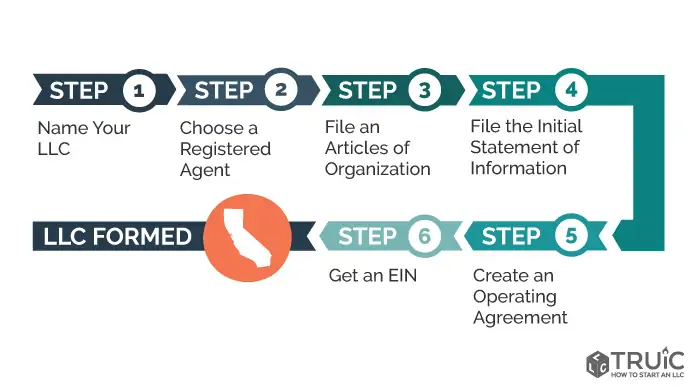In an era where environmental consciousness is on the rise, concerns about harmful chemicals and their impact on human health are at the forefront. Per- and polyfluoroalkyl substances (PFAS) have emerged as a significant environmental threat, prompting a need for legal advocates to champion the cause against these insidious compounds. This article delves into the world of PFAS, its adverse effects, and the crucial role of legal advocates in safeguarding communities.
What are PFAS?
Per- and polyfluoroalkyl substances, commonly known as PFAS, represent a group of synthetic chemicals characterized by their strong carbon-fluorine bonds. These compounds have been extensively used in various industrial and consumer products due to their water and grease-resistant properties. PFAS are found in items ranging from non-stick cookware and waterproof clothing to firefighting foams, making them pervasive in our daily lives.
The Silent Spread
One of the key challenges posed by PFAS is their ability to persist in the environment and accumulate in the human body. These chemicals do not break down easily, leading to their widespread presence in water sources, soil, and even air. The bioaccumulation of PFAS in living organisms, including humans, raises alarming health concerns, as prolonged exposure has been linked to various adverse effects.
The Health Implications of PFAS Exposure
Human Health Risks
Research has shown that exposure to PFAS is associated with a range of health risks, including but not limited to developmental issues, reproductive problems, and an increased risk of certain cancers. The ability of PFAS to migrate through soil and contaminate water supplies has led to numerous instances of communities facing health crises due to prolonged exposure.
Legal Ramifications of PFAS Contamination
As the awareness of PFAS-related health risks grows, affected communities are increasingly seeking legal recourse to address the harm caused. Legal advocates specializing in environmental law play a pivotal role in representing individuals, communities, and organizations affected by PFAS contamination. These advocates work tirelessly to hold responsible parties accountable and secure compensation for the damages incurred.
The Role of Legal Advocates in PFAS Cases
Investigating PFAS Contamination
Legal advocates specializing in PFAS cases employ a multi-faceted approach to investigate contamination. This includes collaborating with environmental scientists and experts to trace the source of PFAS exposure, whether it be from industrial discharges, firefighting training sites, or other contaminated sites. Thorough investigations are crucial for building a strong case against those responsible for PFAS pollution.
Community Advocacy and Awareness
PFAS legal advocates go beyond the courtroom by actively engaging with affected communities. They work to raise awareness about PFAS contamination, its health implications, and the legal options available. Empowering communities with knowledge is a vital aspect of the advocacy process, as informed individuals are better equipped to protect their rights and push for necessary changes.
Litigation and Legal Strategy
Legal advocates employ various legal strategies to address PFAS contamination. This may involve filing lawsuits against corporations or government entities responsible for PFAS pollution, seeking damages for health-related issues, property devaluation, and environmental harm. Class-action lawsuits are also common in cases where entire communities are affected, consolidating individual claims for a more impactful legal battle.
Challenges in PFAS Legal Advocacy
Regulatory Gaps and Advocacy for Change
One of the significant challenges faced by PFAS legal advocates is the existing regulatory framework. Many countries lack comprehensive regulations addressing PFAS, making it difficult to hold polluters accountable. Advocates actively push for stricter regulations and lobby for changes that prioritize public health and environmental protection.
Complex Scientific and Legal Landscape
PFAS cases often involve intricate scientific evidence and complex legal nuances. Legal advocates must navigate through a maze of technical data, scientific studies, and evolving legal standards to build a compelling case. Collaborations with experts in toxicology, epidemiology, and environmental science are essential to establish a strong foundation for litigation.
Moving Towards a PFAS-Free Future
Advocacy for Safer Alternatives
PFAS legal advocates not only react to existing contamination cases but also work proactively to prevent future harm. This includes advocating for the use of safer alternatives in industrial processes and consumer products. By collaborating with industries and policymakers, legal advocates contribute to the development and implementation of sustainable practices that mitigate the risks associated with PFAS.
Community Empowerment and Legislative Action
Beyond individual cases, PFAS legal advocates play a crucial role in empowering communities to advocate for legislative changes. They collaborate with policymakers, environmental organizations, and concerned citizens to push for stricter regulations on PFAS production, use, and disposal. Legislative victories are essential for creating a framework that prevents future PFAS-related crises.
Conclusion: Guardians Against PFAS Harm
As the awareness of PFAS and its potential harm to human health grows, the role of a PFAS (Per- and polyfluoroalkyl substances) lawyer becomes increasingly vital. These advocates serve as guardians against harmful chemicals, fighting for justice, compensation, and a safer, PFAS-free future. Through their investigations, community engagement, and legal prowess, PFAS legal advocates stand as defenders of the environment and public health, holding those responsible for PFAS contamination accountable for their actions. As we navigate the challenges posed by PFAS, the dedication of legal advocates becomes a beacon of hope for affected communities seeking justice in the face of this silent threat.


